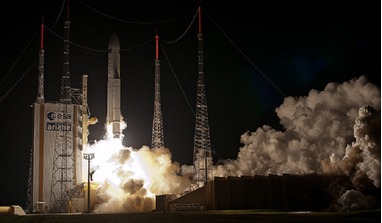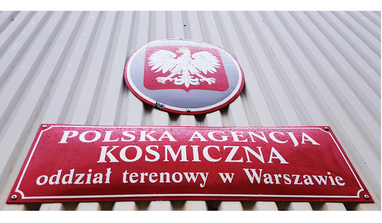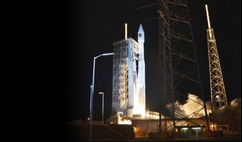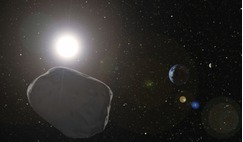 Issue #2(8) 2016
Issue #2(8) 2016
Paolo Ferri continues his unique insider’s view of this ground-breaking mission and its development from concept through to fruition.
 Issue #2(8) 2016
Issue #2(8) 2016
Despite having a national citizen launched into space in 1978, Poland remained a relatively small player on the international space scene until becoming a European Space Agency (ESA) member state in 1994.
 Issue #2(8) 2016
Issue #2(8) 2016
During the last few decades there have been significant developments in Russian astronautics, one of the most visible results of which has been the creation of long-term orbital space stations.
 Issue #2(8) 2016
Issue #2(8) 2016
With a growing trend towards privatisation and commercialisation of space activities, governments around the world have deemed the adoption of national space legislation the most suitable way to regulate and control private space initiatives in order to ensure compliance with international space law principles.
 Issue #2(8) 2016
Issue #2(8) 2016
On 31 October 2016 a rather large asteroid will fly close to Earth. The asteroid, with the catchy designation ‘164121’ is large enough to destroy a country the size of France. 164121 was discovered in 2003 by the Catalina Sky Survey (CSS). Located in Arizona, the CSS has been the most successful asteroid hunting programme. The knowledge gained from CSS has vastly increased our database of known asteroids.
California-based Planet Labs has recently re-branded itself to ‘Planet’. A bold name change is both a sign of the times and signifies growing market confidence for such companies which are systematically turning traditional space business on its head.
If you wrote an encyclopedia entry for ‘satellite’ 18 years ago, the description would have been very different to anything written in 2016. The industry, as a whole, has undergone a level of change that hasn’t been seen since the original space race.
Wing Commander Kiran Krishnan Nair is the Joint Director Operations (Space) at Air HQs, New Delhi. He has been posted to work with the Centre for Airpower Studies, New Delhi, on issues related to sustainable development of space and space security since 2012.
Chen Lan is an independent analyst who created Go Taikonauts! (www.go-taikonauts.com), the earliest unofficial web site about the Chinese space programme, in 1998. He is also co-founder and major contributor of the Go Taikonauts! electronic magazine that provides in-depth reports on the Chinese space programme.
Pascale Ehrenfreund has been Chair of the DLR Executive Board since 17 August 2015. She obtained degrees in Astronomy and Biology at the University of Vienna, where she also earned her doctorate in 1990. Ehrenfreund held a professorship in Astrobiology at the University of Amsterdam and the University of Leiden.